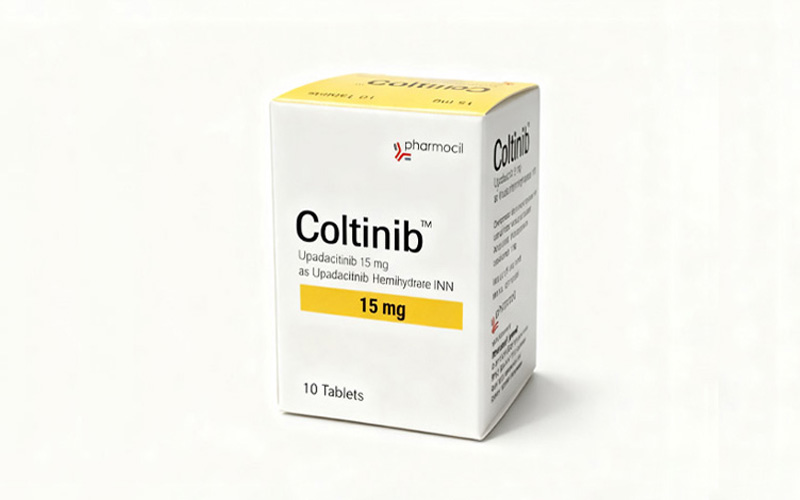Upadacitinib is a selective Janus kinase 1 (JAK1) inhibitor designed to block key inflammatory signaling pathways that drive multiple chronic immune-mediated diseases. By inhibiting JAK1, it disrupts cytokine-mediated intracellular signaling, reduces abnormal immune activation, and ultimately alleviates inflammation, improves symptoms, and helps prevent disease progression.
Janus kinases are essential intracellular enzymes that transmit signals for numerous cytokines involved in immune regulation. JAK inhibitors suppress these pathways and help reset the overactive immune response seen in conditions such as rheumatoid arthritis, atopic dermatitis, and spondyloarthritis. Compared with traditional therapies, JAK inhibitors generally offer faster onset of action, improved symptom control, and better patient convenience with oral administration.
Upadacitinib is one of the first highly selective JAK1 inhibitors approved by the U.S. FDA for the treatment of moderate to severe rheumatoid arthritis in adults who have had an inadequate response to one or more DMARDs. Clinical trials demonstrated significant improvements in joint pain, stiffness, and physical function, with many patients achieving ACR50 or ACR70 responses. In pivotal Phase III studies, Upadacitinib outperformed some conventional DMARDs and biologic agents across multiple clinical endpoints.
In August 2019, the FDA approved Upadacitinib for adults with moderately to severely active rheumatoid arthritis with inadequate response to DMARDs. Data demonstrated significant clinical response and reduced progression of structural joint damage.
As additional clinical data emerged, Upadacitinib’s indications expanded rapidly. By 2022, the FDA had approved Upadacitinib for moderate to severe atopic dermatitis, psoriatic arthritis, ankylosing spondylitis, and non-radiographic axial spondyloarthritis. In atopic dermatitis, Upadacitinib demonstrated rapid improvement in skin lesions and pruritus, with many patients achieving EASI90 or even EASI100.
Upadacitinib has shown strong performance in improving disease activity and enhancing quality of life across multiple immune-mediated conditions. Its oral dosing regimen offers convenience and supports long-term disease management. Today, Upadacitinib is approved in many countries and has become an important therapeutic option for chronic inflammatory diseases.
Treatment of adults with moderately to severely active rheumatoid arthritis who have had an inadequate response or intolerance to one or more DMARDs.
Treatment of moderate to severe atopic dermatitis in patients who have had an inadequate response to topical therapies or who are not suitable candidates for topical treatment.
Treatment of active psoriatic arthritis in adults with inadequate response to traditional DMARDs.
Treatment of ankylosing spondylitis and non-radiographic axial spondyloarthritis.
Approved in certain regions for the treatment of ulcerative colitis (based on local regulatory updates).
Recommended doses vary by condition:
Rheumatoid arthritis: 15 mg once daily.
Psoriatic arthritis: 15 mg once daily.
Atopic dermatitis: 15 mg or 30 mg once daily, depending on disease severity and clinical response.
Ankylosing spondylitis: 15 mg once daily.
Continue treatment until disease progression or unacceptable toxicity occurs.
Dose interruption or adjustment may be required if adverse reactions arise, such as severe infection or laboratory abnormalities. All modifications should follow medical guidance.
Special Population Considerations
Breastfeeding mothers should discontinue breastfeeding or discontinue Upadacitinib. Use during pregnancy should be avoided unless clearly necessary and only under medical supervision. Patients with hepatic impairment should be evaluated carefully before treatment.
Common Adverse Reactions
Common side effects include:
Upper respiratory tract infections, headache, nausea, acne, diarrhea, nasopharyngitis, elevated creatine phosphokinase, and decreased neutrophil count.
A small proportion of patients may be at increased risk of serious infections. Screening for latent infections, such as tuberculosis, is recommended before initiation.
